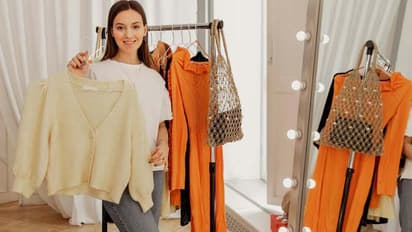Fashion Guide: How to use Color Psychology to elevate your style instantly
Published : May 26, 2025, 07:50 PM IST
Take Your Style to the Next Level with Intelligent Color Choices Fashion and color psychology aren't merely about appearance—they're about expressing, feeling confident, and leaving an enduring impression.
Explore the latest Lifestyle News covering fashion, wellness, travel, Food and Recipes, and more. Stay updated with trending Health News, fitness tips, and expert insights to inspire your daily living. Discover personalized lifestyle trends that keep you stylish and informed. Download the Asianet News Official App from the Android Play Store and iPhone App Store for everything that adds value to your everyday life.
Read more Photos on
